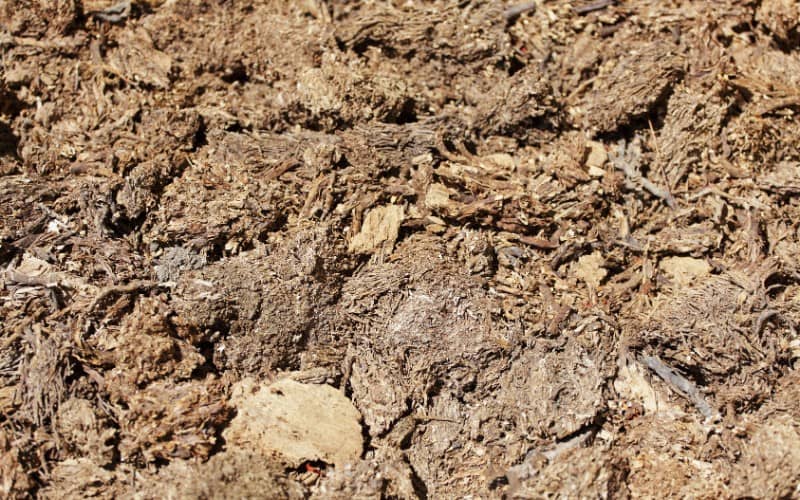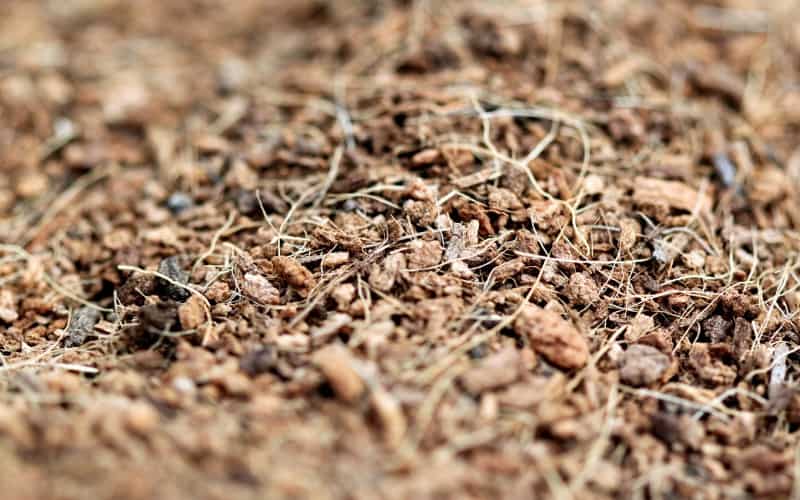Let's face it! Cockroaches are a handful, and that is even putting it mildly. They are tough insect pests that are quite hard to control. They find their way into anything and everything, and they are a good indication that an environment is not 100% clean.
Controlling cockroaches is difficult, and if anyone stands a chance against those terrorists, they will have to use a combination of methods.
We say this because cockroaches and other insect pests have evolved and learned to survive some of the measures, we throw at them. One of those methods is the use of pesticides. In this article, we will look at how to get rid of roaches in mulch.
Table of Contents
Is Mulching Important?
A mulch is an organic material that gardeners add to the soil surface for various reasons. Yes, mulching is important for several reasons.
Some of those reasons are improving soil health, reducing weeds' growth, enhancing soil fertility, and preventing water loss from the soil. Some people also use mulches to beautify their garden.
In temperate climates, mulch can be vital in retaining soil heat, especially during winter. Gardeners also use them to prevent plants from growing in winter since they will freeze to death if they grow.
Though mulches can prevent water loss via evaporation, they can also prevent rain from reaching the soil, which may be counterproductive.
Mulches can be permanent or temporary. Permanent mulches can be made of a plastic sheet, and bark chips can serve as temporary ones.
Gardeners apply the mulch either on the soil directly or around a plant. Organic mulches are excellent in the sense that they will naturally fit into the ground and be decomposed by worms and some other agents of putrefaction.
What Attracts Roaches in Mulch?
When you apply the mulch properly over the soil in your garden, you rest assured that excess evaporation will stop and that the ground will have an even temperature. These are all wins for you and your plants.
But if the mulching is not done correctly, it may lead to pest infestation, and the most popular insect pest bad mulching attracts is the cockroach.
Though roaches can cause your mulch to decay faster, they have such high reproductive rates that they can overrun your garden in just a matter of weeks.
Like any organism alive, cockroaches are in constant search of what to feed on and how to multiply. Below are some of the things that will attract roaches to your garden after mulching.
1. Moisture
Cockroaches need a lot of water to live and then reproduce, so it is not surprising when you see them in wet places. If you did your mulching correctly, it would not stay wet for long when water touches it.
Instead, the water will quickly seep into the soil. But when there is a massive mulch layer, matted together and wet, roaches will have a field day on your garden.
They enjoy being inside your mulch. This worsens if there is a place where water so much as pools. Combine this with a warm temperature, and you have started rearing a community of roaches- albeit unknowingly.
2. Safety
The next thing the roaches are concerned about after food and water is their shelter. They are not oblivious to the fact that they have many enemies.
For roaches, the best time to forage is at night when everyone is resting. During the day, they spend their own time hiding and resting.
If your mulch is thicker than 6 inches, you may have just created the perfect hideout for cockroaches. Their natural predators can’t get to them because they are hiding in your mulch. If the mulch is only 3 to 6 inches thick or deep, roaches won’t have the option to hide. They have to move on.
3. Type of Material Used for the Mulching
Some organic mulches, like the one made of pine straws, most times attract cockroaches. They love the pine straws because it is edible to them and they provide spaces for them to hide. If you see that a particular mulch type is attracting a lot of insect pests, replace it.
4. Close To Another Infested Site
Do not keep your garden close to your kitchen where roaches may be staying. They will cross over to your garden in search of ‘greener’ pastures.
When you are making your mulch, let it spread thinly so that water can pass through onto the soil and so there will be no space for the roaches to hide. Many roaches detest light; use this to your advantage to stop an infestation.
How to Get Rid of Roaches In Mulch
So, let us get right down to it. What do we do to rid our mulches of cockroaches? Let us find out.
1. Use Natural Enemies
The universe mainly exists in a prey-predator relationship. Just as you eat something, something will eat you. Cockroaches do not have only humans as enemies. They have a couple of others that will instead not want them to be. Here are some of them:
Fire Ants: Fire ants are dangerous insects on their own, but if we have to choose between two ‘evils’, we’d have to choose the fire ant. So, introduce them to your garden and watch them have roaches for breakfast, lunch, and dinner.
Birds: Even though birds mainly pick on grains, they tend to eat other things like worms and cockroaches. If birds are having a hard time coming to your garden, you can use grains to attract them. When they show up, they pick the gains and the cockroaches.
Parasitic Wasp: Some wasps eat roaches. You can either buy them and introduce them to the garden or plant other crops that attract parasitic wasps like yarrow, masterwort, caraway, or dill.
2. Don’t Give The Roaches Room
The adage, prevention is better than cure, may have an application in controlling these troublesome insects. The best and cheapest way to eradicate roaches is to make sure they do not show up at all.
Like we mentioned earlier, roaches are in love with dark and moist places. So, ensure that your garden does not have such spaces for them to hide in. Make your mulch thin and spacious.
Keep the garden neat, and do not leave unneeded clutter that may encourage these roaches' presence and reproduction. If you are using a temporary mulch, you should replace the mulch or turn it often, so the roaches won’t be comfortable staying there.
During those cold wintery nights, some of us love making winter fires to warm up. As much as you can, keep the woodpiles far from your garden and make sure the woods are dry and cool, so you don’t import the insect from there into your garden.
Another thing we strongly discourage is the making of compost piles in your garden. Those are perfect breeding sites for cockroaches. If you must make a compost pile, do that far from your garden and make sure you cover the pile.
Turn the pile often to deter the roaches from turning there into a permanent residence. If you cannot help but store the piles near the garden, ensure that they are well sealed. Leave no careless dirt outside the pile.
3. Use of Chemicals
The use of chemicals is one of the most popular methods of pest control. Entomologists always say that the use of chemicals for pest control should be a last, desperate resort. This opinion is due to different reasons.
One of the reasons is that sometimes, these chemicals do not properly kill all of these pests. So, any pest that survives a chemical attack has the potential of breeding species that will be tougher to kill using insecticides. The second reason is the toxicity of these chemicals.
Most of them are not safe for the environment, and lastly, these chemicals might kill beneficial insects. These are the cons of using chemical control. But when you are out of options and the previous methods are not working, you can use the chemicals.
Buy sprays, gels, and powders that contain insecticides like fipronil or boric acid. The latter is so effective in killing roaches.
You can use diatomaceous earth, which is a naturally occurring rock. These rocks are crushed into powder and sold. The pieces are fine, sharp, and dry. When you spray them on your mulch, roaches are in trouble because it messes with their respiratory system.
When the roaches inhale it, it dries up the mucous membranes inside their lungs and breathing holes. Diatomaceous earth is effective on many insect pests and worms. It is also non-toxic to pets and children.
>>>Here's our recommended insect killers for vegetable gardens.
Conclusion
How to get rid of roaches in mulch is one question that bugs every gardener. No one wants their farm to be overrun by these irritating, disease-carrying insects.
The best thing to do is prevent and discourage the growth of cockroaches in your garden, but if they are already guests in your garden, it is advisable to use natural means to eradicate them. Resort only to chemicals when every other method has failed to yield results.






